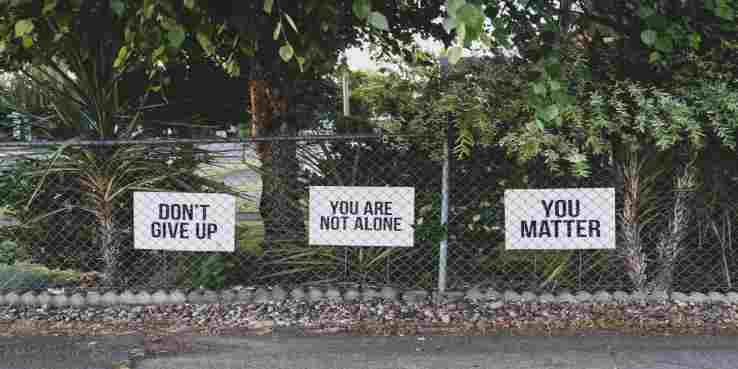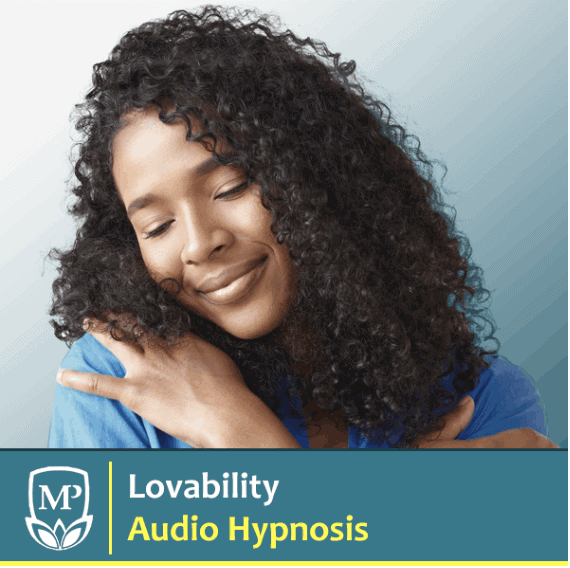In honor of the USA’s Mental Health Awareness Month and its 70th anniversary, plus the UK’s Mental Health Awareness Week, I’m going to be looking at ways that you can improve or maintain your mental and emotional state. I will uncover the blockers that can often get in the way of mental wellbeing and discuss the causes and effects of mental disorders such as bipolar, anxiety and depression. I will also look into how diet and the mind are linked, and the groundbreaking methods Marisa Peer uses to help her clients.
Mental Health Awareness Month

Mental Health Awareness Month was initiated in 1949 by Mental Health America (MHA)―a community-based, not-for-profit organization that is dedicated to helping those living with mental illnesses. MHA was founded in 1909 by former psychiatric patient Clifford W. Beers. During his times at mental institutions, Beers witnessed and was subjected to awful abuse. Due to those experiences, Beers made a reform movement that was the birth of Mental Health America.
This year’s Mental Health Awareness Month is expanding upon last year’s theme of #4Mind4Body. It is exploring the topics of animal companionship, spirituality, humor, work-life balance, and social connections in order to boost mental health and general wellbeing.
1. Animal Companionship
MHA states that ‘nearly 70% of U.S. households (84.6 million) own a pet. Of those:
- 80% believe their pets bring them happiness and emotional support;
- 55% believe their pets reduce anxiety and depression; and
- 66% believe their pets relieve stress.’
My family has had a number of pets including cats and dogs since I was a child, and I believe that stroking a pet and talking to them really helps me to calm down when I’m upset or angry. I also love the feeling of companionship and the animal’s unconditional happiness when they see you walk through the front door.

The Mental Health Org website says: ‘A pet can be a great source of comfort, companionship and motivation for their owners. In many ways, pets can help us to live mentally healthier lives. Pets are also a great motivator for people. Dogs especially are great at encouraging owners to get exercise, and this can be beneficial for those suffering from depression. Pets can also have calming effects on their owner. Just by stroking, sitting next to or playing with a pet can give owners a chance to relax and calm their minds. Caring for a pet also gives your day purpose and reward, and a sense of achievement. It also helps you feel valuable and needed. Walking a dog often leads to conversations with other dog owners and this helps owners to stay socially connected and less withdrawn. People who have more social relationships and friendships tend to be mentally healthier.
We carried out a study with Cats Protection in 2011 which involved over 600 cat- and non-cat-owning respondents, with half of them describing themselves as currently having a mental health problem. The survey found that 87% of people who owned a cat felt it had a positive impact on their wellbeing, while 76% said they could cope with everyday life much better thanks to the company of their feline friends.
Half of the cat owners felt that their cat’s presence and companionship was most helpful, followed by a third of respondents who described stroking a cat as a calming and helpful activity.’
2. Spirituality
MHA says: ‘Regardless of whether you rely on meditation, yoga or religion, caring for your soul is an important part of taking care of yourself that can improve physical and mental health along the way.’

Personally, I like to use yoga to help look after my mental health. I find it very grounding when I focus on the different types of breathing techniques, and the poses.
Harvard Health Publishing rcently posted about the link between yoga and mental health. It stated: ‘By reducing perceived stress and anxiety, yoga appears to modulate stress response systems. This, in turn, decreases physiological arousal—for example, reducing the heart rate, lowering blood pressure, and easing respiration. There is also evidence that yoga practices help increase heart rate variability, an indicator of the body’s ability to respond to stress more flexibly.
For many patients dealing with depression, anxiety, or stress, yoga may be a very appealing way to better manage symptoms. Indeed, the scientific study of yoga demonstrates that mental and physical health are not just closely allied, but are essentially equivalent. The evidence is growing that yoga practice is a relatively low-risk, high-yield approach to improving overall health.’
3. Humor
MHA says: ‘Finding humor in the circumstances of life can lift moods with laughter and help people to better deal with and overcome difficult experiences.’
A good laugh is often the best medicine for me when I’m feeling down. Laughter can really lift my mood in an instant and allows me to let things go.

4. Work-Life Balance
MHA ran a survey on work health and found that more than half of the respondents said that they do unhealthy things like drinking, taking recreational drugs, and lashing out at others to try to help them cope with stress from work. They also found that over 75% of people were afraid of getting disciplined for taking a day off work in order to attend to their mental health.
I have experienced stress at work and it has really affected how I behave when I get home. After a particularly bad day I would find myself snapping at my family, craving junk food and wine, plus losing motivation to attend the gym in the evening.
5. Social connections
MHA says: ‘Finding other people to relate to and doing things that bring you enjoyment are great ways to improve your mood and overall mental health.’
Having my friends and family around me can really help to lift my mood when I feel anxious or stressed. When I’m lonely, it only adds to my feeling of apprehension.
Mental Health Awareness Week

The Mental Health Foundation is a UK charity that has been active for over 70 years. This year’s topic of body image for the awareness week is something that I can relate to.
‘Hosted by the Mental Health Foundation, Mental Health Awareness Week 2019 will take place from Monday 13 to Sunday 19 May 2019. The theme for 2019 is Body Image―how we think and feel about our bodies.
Mental Health Awareness Week is the UK’s national week to raise awareness of mental health and mental health problems and inspire action to promote the message of good mental health for all.
Mental Health Awareness Week has been run by the Mental Health Foundation since 2001…
Last year we found that 30% of all adults have felt so stressed by body image and appearance that they felt overwhelmed or unable to cope. That’s almost 1 in every 3 people.
Body image issues can affect all of us at any age and directly impact our mental health.’

Over the years of growing up, I feel that there has been so much pressure on me to look a certain way. It all started with tabloids and magazines that I read as a teenager, then in my early 20s, the explosion of social media. I have been bombarded by words and images to make me think that having cellulite is bad, having stretch marks is bad, and having stomach rolls when I sit down is bad. I have at times felt too worried to take my clothes off in front of people, or have my picture taken. I have felt disgusted with the way that I look and it has had a negative impact on my mental health. However, since I have been following Marisa Peer, she has totally transformed the way that I see myself. She has taught me the importance of high self-esteem and confidence, and how being healthy is far more important than trying to look a certain way which is not even attainable as it’s not real.
Mental Health Problems
The Mental Health Gov website defines mental health as the following: ‘Mental health includes our emotional, psychological, and social well-being. It affects how we think, feel, and act. It also helps determine how we handle stress, relate to others, and make choices. Mental health is important at every stage of life, from childhood and adolescence through adulthood.’
There are a number of known mental health problems and disorders including the following:
Anxiety and panic attacks – anxiety is a general feeling of unease and panic attacks are the onset of intense fear or discomfort, often with heart palpitations, sweating and shortness of breath
Bipolar disorder – this mental health condition affects your moods and can cause them to swing from one extreme to another
Body dysmorphic disorder (BDD) – a condition where you can’t stop thinking about defects or flaws in your appearance. You may feel so ashamed and anxious that you may avoid social situations
Borderline personality disorder (BPD) – this disorder affects your mood and how you interact with others. You may have disturbed thoughts and struggle with showing emotion
Depression – a mental condition where you feel intense feelings of sadness and even have suicidal thoughts or attempts
Eating disorders – these include bulimia and anorexia which are an unhealthy attitude towards food. It can take over your life and make you ill
Obsessive-compulsive disorder (OCD) – this causes obsessive thoughts and compulsive behaviors which can be distressing and interfere with your life
Paranoia – a mental condition characterized by deluded thoughts of unwarranted jealousy, extreme worry or exaggerated self-importance
Phobias – these cause overwhelming and debilitating fears of objects, places, situations or animals
Postnatal depression – this is depression felt by a mother following childbirth, typically arising from the combination of hormonal changes, pain, life adjustments, and tiredness
Post-traumatic stress disorder (PTSD) – this is an anxiety disorder caused by very stressful, frightening or distressing events. You often relive the traumatic event through nightmares and flashbacks
Premenstrual dysphoric disorder (PMDD) – a condition in which a woman has severe depressive symptoms, irritability, and tension before menstruation
Psychosis – a severe mental disorder where the mind is lost with external reality
Schizophrenia – a severe mental disorder where you have abnormal behavior, strange speech, and an inability to understand reality
Seasonal affective disorder (SAD) – a type of depression that is directly related to the changing of the seasons. Your symptoms start in the fall and continue into the winter months, decreasing your energy and making you moody
Stress – this is your body’s way of responding to any kind of demand or threat. When you sense danger, your body goes into the automatic process known as ‘fight or flight’
Rapid Transformational Therapy for Mental Health Awareness Month
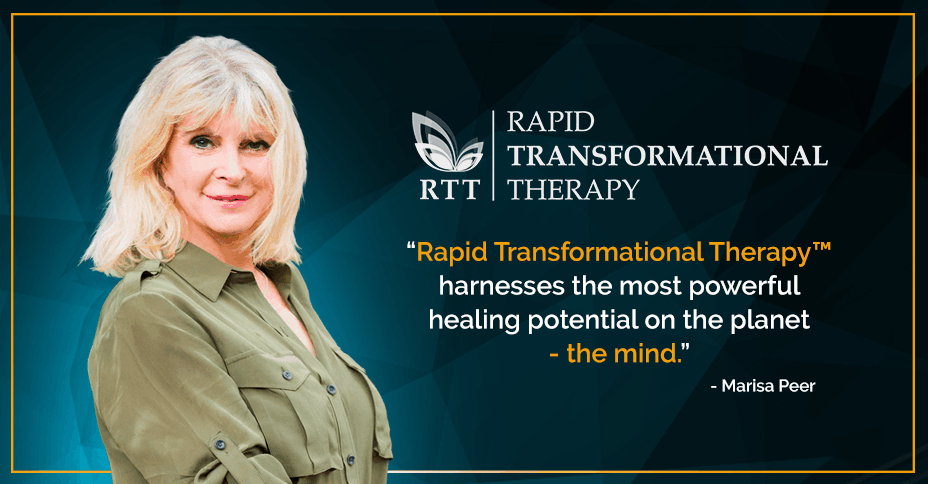
Marisa has over 30 years’ experience in helping clients overcome these issues and she has created her own innovative approach called RTT™ (Rapid Transformational Therapy), which utilizes the most beneficial principles from hypnotherapy, psychotherapy, neuroplasticity, CBT, and NLP.
I have benefitted hugely from reading Marisa’s remarkable book called ‘I Am Enough’. She describes these three words as “words that can change your life.” She believes that everyone can use the phrase ‘I am enough’ to achieve success in every key area of their life.

I have also listened to the following hypnosis audios created by Marisa, which have given me everlasting change in my thinking patterns and behaviors. I have formed new habits that are good for me and when I think back to how I was, I just cannot believe that I used to act that way.
This hypnotherapy download has helped me tap back into the high self-esteem that I was born with. Marisa took me back to scenes of being a young child, where I had no fear of being judged and I was proud of myself every day. I now apply this feeling to modern-day situations to radiate confidence and self-assurance.
This hypnotherapy audio has helped me to fall in love with myself and realize that I am worthy of receiving love. I no longer reject love; I embrace it as I know that I deserve it.
Improve Your Mood and Gut Health
A topic that is often a surprise to some people is that dairy, cereals and grains can actually be bad for us. In this blog post, Marisa explores Cereals and Grains – are they good for you or do they keep you fat? In Is Dairy Bad for You? Marisa explains how non-organic cow’s milk is polluted with pesticides, steroids, antibiotics and synthetic hormones―these can all wreak havoc on our gut health. Read about the foods that Marisa rates and hates in this free blog.
IBS (Irritable Bowel Syndrome) And The Mind
I have recently researched the topic of IBS: diet and the power of the mind. After suffering from it for most of my childhood, I have only recently overcome it through eating the right diet, exercising, and using the power of my own mind. Like Marisa, I have found that junk and processed foods do nothing for my body. Instead, I aim to eat plenty of essential oils in oily fish, nuts, and avocados, I also take probiotic supplements and eat fresh vegetables to really soothe my digestive system. Yoga has helped me improve my mood and certain poses such as the downward-facing dog have eased my constipation. I use the power of my mind to regularly picture my large intestine and colon working like a seamless orchestra. I repeatedly say out loud, “I have a brilliant digestive system” to communicate this belief to my body and mind, as our mind will believe what we tell it and beliefs are strengthened through repetition.
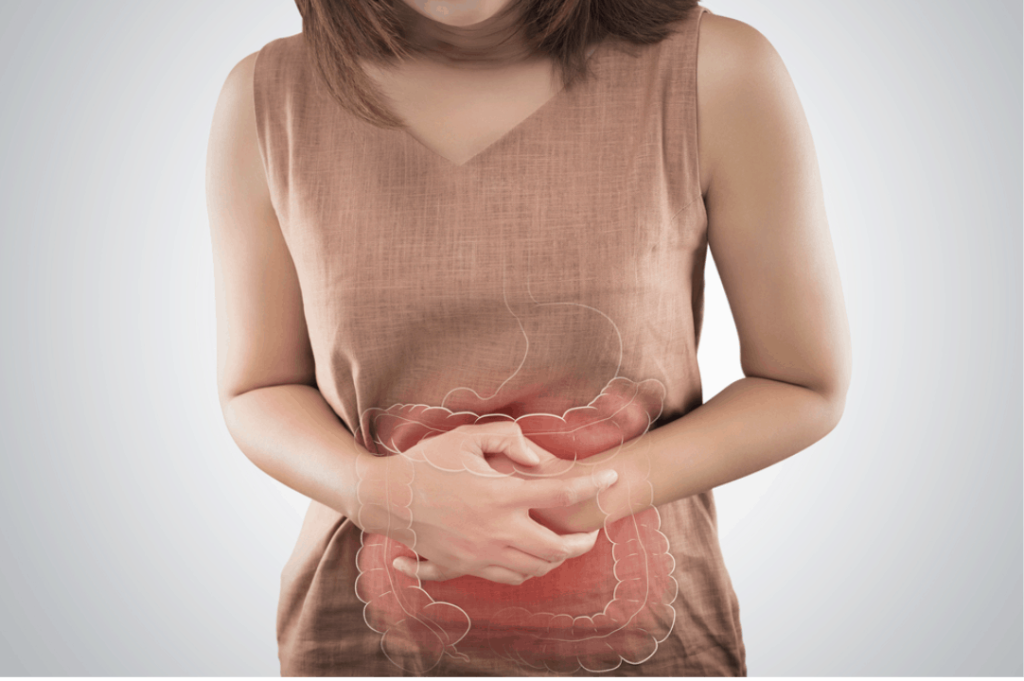
When my IBS symptoms have flared up badly in the past, they have had a direct impact on my mental health. I have felt anxious, unmotivated, self-conscious of my bloating and have felt like my mind is foggy. When my digestive system is working seamlessly, my mind clears and I have so much more energy and positivity.
Follow These Tips to Improve Your Mental Health
To conclude the mental health awareness month, here is a round-up of the topics that I have discussed to improve your mental wellbeing:
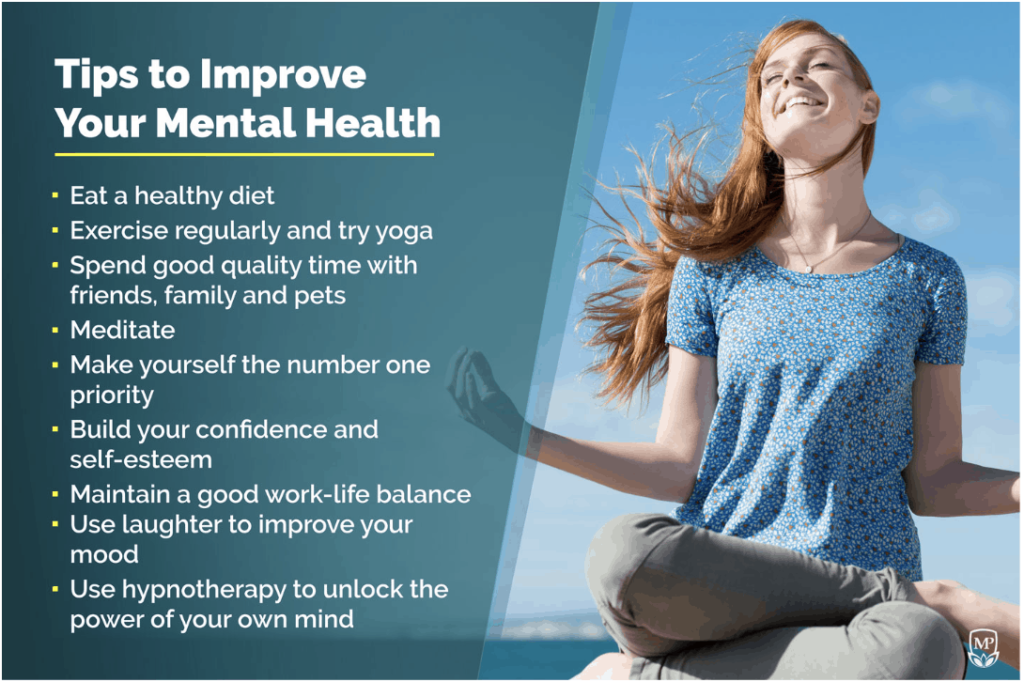
Please share this “Mental Health Awareness Month” article with friends and family and don’t forget to sign up to our free Wellness Weekly digest if you haven’t already. As a valued member of our community, we want to make sure that you enjoy the benefits and the very best resources from Marisa’s revolutionary approach to transforming lives. Register below.

